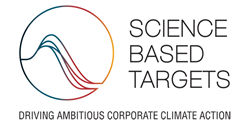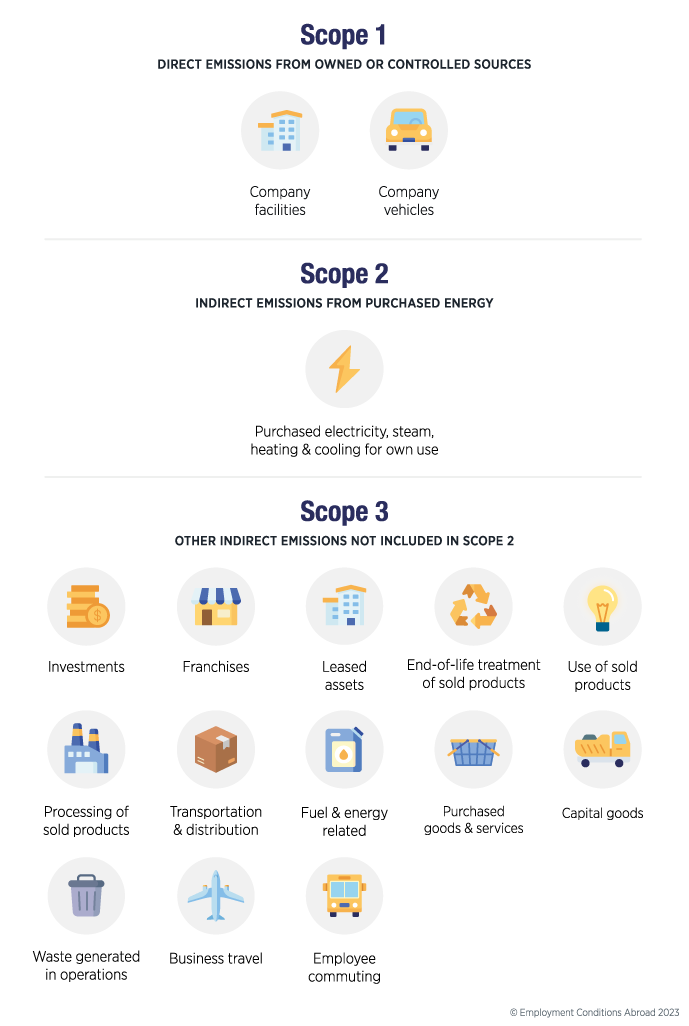In an era where environmental, social and governance (ESG) considerations have become essential aspects of responsible business, the ECA International Group, which includes ECA International (ECA) and Tracker Software Technology (TST), stands proudly at the forefront. We place responsibility and sustainability at the very heart of how we operate as a business.
Today we’ve invited Hugh Tibbs, IDR Manager at ECA International, and a key driver of change within the company, to tell you about the progress we are making specifically focusing on the environmental aspect of our sustainability journey.
Could you share a bit about your background? What motivated you to participate in ECA's sustainability journey?
Hugh: I have spent my 12 years at ECA within the International Data Researcher (IDR) team, initially as an IDR and in more recent years managing the team. The IDR role involves regularly travelling around the world, collecting a range of data used for ECA’s products, in particular cost-of-living comparisons.
Over the last decade, our IDR team expanded. With this growth came the ability to provide even more robust data, reliable results and insight only in-person visits from experts can provide for our valued clients. Yet, as an organisation and as a team in particular, a growing awareness settled in — our frequent travels were undeniably causing an environmental impact. The team and I felt the need to mitigate the impact of our travel, and it was a huge sense of responsibility that motivated me to get involved.
The journey began in 2019 with a pilot project to calculate the carbon emissions from the team’s travel, with a view to offsetting these emissions through reputable offset schemes. As our commitment deepened, we expanded this initiative to cover all business travel within the company, obtaining CarbonNeutral Business Travel certification in 2020.
Since your first involvement with the initiative how has ECA’s position evolved?
Hugh: We are in a decisive decade for our climate. We all know that the need to address climate change has never been more apparent, and ECA has a strong sense of mission in evolving from awareness to taking concrete actions.
The Intergovernmental Panel on Climate Change (IPCC) has said we need to halve carbon emissions by 2030 to stand a chance of limiting global warming to 1.5°C. In recent years, there has been a rapid move towards setting ambitious decarbonisation targets globally. Even as a small to medium-sized enterprise (SME), ECA also recognises the severity of the situation. While we may not need to meet the same emissions reporting requirements as larger organisations, we chose to lead by example, looking beyond offsetting to predominantly focus on measuring and reducing our carbon emissions.
ECA has expanded the range of data we provide to give clients the flexibility to offer sustainable options when sending staff abroad. For example, we now provide data on electric cars and public transport, as well as traditional car information, and alternatives to shipping belongings, such as furniture hire/purchase, so companies and their assignees can choose sustainable options that work for them.
In addition, while our classroom training sessions have resumed after the pandemic, we now offer online training modules, not only to reach a wider audience, but more importantly to minimise the need for travel to our London office or other locations. The ECA International Group also fully supports flexible work arrangements, with ECA offering hybrid working options and TST operating as a fully remote team.
In 2022 we embarked on a new project, partnering with external sustainability consultancy Anthesis, to do an inventory of our company-wide emissions and set near-term targets for reduction through the Science Based Target initiative (SBTi).

Can you explain the background to the SBTi and elaborate on the process ECA has undertaken in setting science-based targets?
Hugh: The Science Based Target initiative is a global body set up in 2015 which enables businesses to set ambitious emissions reduction targets in line with the latest climate science. The targets are focused on either near-term targets of 2030 or longer-term net zero targets by 2050. To date, there are over 5 000 companies that have either set targets or committed to doing so through the SBTi.
ECA’s first stage in the process was conducting a comprehensive greenhouse gas (GHG) emissions inventory. To set targets, first we needed to understand our current emissions. This involved working with Anthesis, who helped us define our organisational boundary and identify the areas we would need to source data for calculating emissions in line with the relevant GHG Protocol.
We then had to decide which year to select as our baseline year, which will be used as a benchmark to measure our progress towards the target. After looking at two years’ worth of recent data, we decided to choose 2019 as the baseline year, as this was the most recent year which wasn’t affected by abnormalities caused by the Covid-19 pandemic, particularly in business travel and office working.
The next step was gathering all the relevant data to complete the GHG inventory. These data are categorised into three scopes: scope 1 (direct emissions from owned or controlled sources), scope 2 (indirect emissions from purchased energy) and scope 3 (other indirect emissions not included in scope 2).
Once collected, these data were then uploaded into a digital climate tool, provided by Anthesis. This allowed Anthesis to calculate emissions and estimate any data gaps effectively. Once our baseline year emissions had been calculated, ECA, as an SME, became eligible to submit our targets to the SBTi through their streamlined route for validation.

What is the target and how will we measure and track its progress?
Hugh: Under the SME near-term target route, we are required to set targets for our absolute scopes 1 and 2 emissions to a pre-defined target year of 2030. We have committed to reduce our scopes 1 and 2 emissions by 46% by 2030, when compared to our 2019 baseline year.
This target is consistent with reductions needed to keep global warming to 1.5°C and has recently been validated by the SBTi. We have also committed to measure and reduce our scope 3 emissions. We will then measure our GHG emissions annually, using the same methodology we used to establish our baseline emissions, reporting our annual progress against the 2030 target.
We have committed to reduce our scopes 1 and 2 emissions by 46% by 2030, when compared to our 2019 baseline year.
”
What steps do you think will be key to achieving these targets and what challenges do you expect we will have to overcome?
Hugh: Our scopes 1 and 2 emissions are predominantly from energy use within our offices, so ensuring our offices are on renewable energy tariffs, by actively engaging with building management, will be key to achieving that target. The bigger challenge is likely to be scope 3 emissions; unsurprisingly, one emissions hotspot identified in our GHG inventory was business travel. Air travel is unlikely to become significantly decarbonised any time soon due to a lack of viable alternatives to high emitting fuels, so a big challenge will be reducing our travel without compromising what we offer to our clients.
A successful example of this from within ECA’s team of International Data Researchers is how we have been able to utilise the recent expansion of online shopping, much of which was driven by the COVID-19 pandemic. For countries with a comprehensive online shopping infrastructure, where we have been able to verify that online prices match those on the ground, we are able to travel less frequently by alternating in-person trips with remote data collection. This has allowed us to reduce the number of locations we plan to visit in 2023 by 35% compared to 2019, without compromising on the reliability of the data.
What's next for ECA’s environmental sustainability journey?
Hugh: We are forming an internal Sustainability Taskforce, who will build on the knowledge we have gained through the GHG emissions inventory, consolidating ideas and recommendations from Anthesis into an Action Plan to ensure we reach our near-term 2030 target. The Taskforce will also consider wider sustainability initiatives, for example ECA’s approach to carbon offsetting, as well as longer-term targets like our pathway to achieving net-zero. We are considering sustainability from an environmental, social and governance perspective in our operations as a whole, from how we make our products and services available to our clients, to our relationship with our suppliers.
Despite being an SME with limited resources and manpower compared to larger organisations, our determination knows no bounds. We take pride in the progress we have made so far, thanks to the dedicated efforts of colleagues from across the company who share our passion for the environment. They are eager to actively contribute to ECA's sustainability journey.
The diversity of the Taskforce members also enables us to create initiatives that align with the various aspects of our business. Our commitment to environmental responsibility remains strong, and we're excited about the positive impact we will continue to make on our journey towards a sustainable future.
FIND OUT MORE
The ECA International Group is dedicated to driving real change through our sustainability commitments and initiatives. We will continue to position sustainability - from an environmental, social and governance perspective - at the core of our operations as a whole, from how we make our products and services available to our clients, to our relationship with our suppliers. We will be sure to report on our developments and achievements.
Guidance for mobility teams
Do you need any support with your team's sustainability journey? We have been helping clients through various service offerings, via our evolving data offering as well as our Consultancy team working with global mobility teams to adapt their policies and provide valuable insight and advice.
Don't forget to read our other related blog posts on sustainability. In 'Making Global Mobility more sustainable', we examine methods to minimise the environmental impact of global mobility throughout the assignment process, as well as how these decisions can affect assignees in 'Balancing assignee satisfaction with sustainable actions'.
We also look into the challenges of sustainability and provide strategies to kick-start or enhance your company's sustainability journey in the blog post 'Overcome the inherent obstacles in making Global Mobility sustainable'
Please contact us to speak to a member of our team directly.